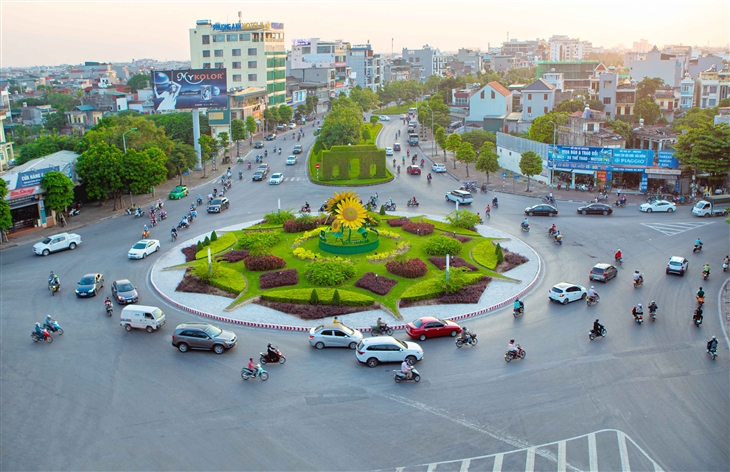ASEAN Economic Community: Firms will benefit, but gradually
Friday, November 27,2015AsemconnectVietnam - The ASEAN Economic Community's (AEC's) creation will encourage some firms here to expand abroad in the near term, experts say.
But in the longer term, the Singapore economy is set to get a significant boost from the AEC, which officially comes into being on Dec 31.
ASEAN leaders on Sunday established the community, with one aim to promote the freer movement of trade and capital in the region.
Mr Guy Harvey-Samuel, chief executive of HSBC Singapore, said that if the AEC is well implemented, Singapore's economic output would be 9.5 per cent higher by 2030 than if there was no such community.
Still, the AEC's impact on firms here is likely to be gradual, noted Mr Glenn Maguire, ANZ Research's chief economist for the South Asia, ASEAN and Pacific region, as the aim is for the AEC to be fully operational over the next 10 years.
Mr Bryan Goh, chief investment officer of merchant bank Bordier & Cie Singapore, notes however that work still needs to be done.
"The AEC blueprint contains many statements of intent and action points, but there is not a lot of hard legislation or immediate action," he said. "The AEC is not anywhere near as advanced as the European Union in terms of its conceptualisation and implementation and yet the EU already has many problems as to harmonisation of rules and regulations governing trade and commerce and labour laws."
Mr Maguire said in the near term, the AEC would spur more firms here to move production of lower-value goods to countries where labour is cheaper. The standardisation of Customs procedures would make shipment of goods easier, he added.
Also, given that trade is shrinking in most of Asia, many firms would seek to grow their margins to protect their bottom lines. This would also motivate firms to take advantage of the AEC and move production to cheaper bases.
The few firms still making clothing here will likely move production to economies such as Vietnam and Thailand where labour costs are lower. More firms producing electronics here will move production to Malaysia, he said.
The AEC will also spur more cross-border movement of services and investment, added Mr Harvey-Samuel. This will lead to the expansion of financial products and services sold within the region, and further consolidate Singapore's position as its financial hub, he said.
The relaxation of rules on foreign ownership will also help Singapore companies, said Associate Professor Tan Khee Giap of the Lee Kuan Yew School of Public Policy. Banks, for instance, wishing to expand into the region will be able to own a bigger stake in foreign banks.
However, progress could still be made in more areas. Prof Tan said costs involved in getting a licence and in collaborating with foreign firms in foreign countries were still relatively high.
Firms in high-value sectors such as pharmaceuticals and cloud computing are less likely to be affected by the AEC.
They are likely to remain here as labour costs are a smaller component of production costs and intellectual property protection here is better, Mr Maguire said.
Source: Bloomberg.com
Binh Duong province seeks cooperation opportunities with Australian partners
Forum looks to promote Vietnam – Canada economic ties via CPTPP
Vietnam, Netherlands strengthen agricultural cooperation
US newswire sees positive signs in Vietnamese stock market
Hanoi, Vientiane expand business cooperation
Vietnam, US strengthen trade relations
Mini Thailand Week to take place in Quang Ninh this month
RoK’s Gyeongbuk, Chungbuk firms engage in business talks in Hanoi
Scholar analyses why US should recognise Vietnam as market economy
Vietnam, New Zealand eye further trade growth
Vietnam, Japan promote financial cooperation
Vietnam, New Zealand reinforce all-round ties, eye new level of relations
Vietnam’s financial market favoured by RoK investors
Da Nang calls for TheCityUK’s support in int’l financial centre building

Plan of Hai Duong province for a period of 2021 - 2030, ...
Organize space reasonably and harmoniously, focusing on connecting Hai Duong in common development space, actively contributing to the ...Plan of Hau Giang province in a period of 2021 - 2030, ...
Sustainable forestry development program in a period of ...

Students promote Vietnamese culture in Russia
The Vietnamese Students’ Association in the Peoples' Friendship University of Russia (RUDN) held an event called "Bamboo Legend” on ...Exhibition on General Vo Nguyen Giap opens in Nghe An
Da Lat festival: Classical music taken out of auditorium ...



